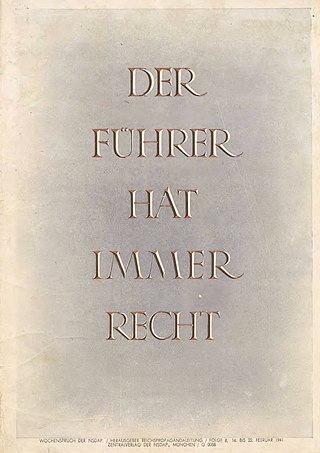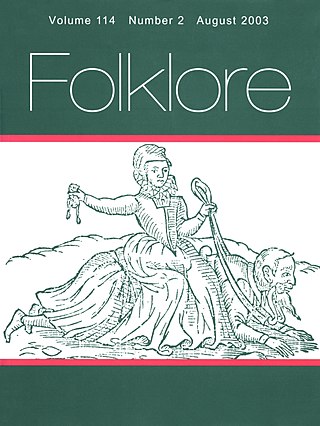Related Research Articles

Cultural imperialism comprises the cultural dimensions of imperialism. The word "imperialism" describes practices in which a country engages culture to create and maintain unequal social and economic relationships among social groups. Cultural imperialism often uses wealth, media power and violence to implement the system of cultural hegemony that legitimizes imperialism.

Democide refers to "the intentional killing of an unarmed or disarmed person by government agents acting in their authoritative capacity and pursuant to government policy or high command." The term was first coined by Holocaust historian and statistics expert, R.J. Rummel in his book Death by Government, but has also been described as a better term than genocide to refer to certain types of mass killings, by renowned Holocaust historian Yehuda Bauer. According to Rummel, this definition covers a wide range of deaths, including forced labor and concentration camp victims, extrajudicial summary killings, and mass deaths due to governmental acts of criminal omission and neglect, such as in deliberate famines like the Holodomor, as well as killings by de facto governments, for example, killings during a civil war. This definition covers any murder of any number of persons by any government.
Nationalism is an idea and movement that holds that the Nation should be congruent with the state. As a movement, it presupposes the existence and tends to promote the interests of a particular nation, especially with the aim of gaining and maintaining its sovereignty (self-governance) over its perceived homeland to create a nation-state. It holds that each nation should govern itself, free from outside interference (self-determination), that a nation is a natural and ideal basis for a polity, and that the nation is the only rightful source of political power. It further aims to build and maintain a single national identity, based on a combination of shared social characteristics such as culture, ethnicity, geographic location, language, politics, religion, traditions and belief in a shared singular history, and to promote national unity or solidarity. Nationalism, therefore, seeks to preserve and foster a nation's traditional culture. There are various definitions of a "nation", which leads to different types of nationalism. The two main divergent forms identified by scholars are ethnic nationalism and civic nationalism.
A nation is a large type of social organization where a collective identity, a national identity, has emerged from a combination of shared features across a given population, such as language, history, ethnicity, culture, territory or society. Some nations are constructed around ethnicity while others are bound by political constitutions.

Orthodox Judaism is the collective term for the traditionalist branches of contemporary Judaism. Theologically, it is chiefly defined by regarding the Torah, both Written and Oral, as revealed by God to Moses on Mount Sinai and faithfully transmitted ever since.
Racism is discrimination and prejudice against people based on their race or ethnicity. Racism can be present in social actions, practices, or political systems that support the expression of prejudice or aversion in discriminatory practices. The ideology underlying racist practices often assumes that humans can be subdivided into distinct groups that are different in their social behavior and innate capacities and that can be ranked as inferior or superior. Racist ideology can become manifest in many aspects of social life. Associated social actions may include nativism, xenophobia, otherness, segregation, hierarchical ranking, supremacism, and related social phenomena. Racism refers to violation of racial equality based on equal opportunities or based on equality of outcomes for different races or ethnicities, also called substantive equality.
The Aryan race is an obsolete historical race concept that emerged in the late-19th century to describe people who descend from the Proto-Indo-Europeans as a racial grouping. The terminology derives from the historical usage of Aryan, used by modern Indo-Iranians as an epithet of "noble". Anthropological, historical, and archaeological evidence does not support the validity of this concept.

In the political history of Germany, the Führerprinzip was the basis of executive authority in the Government of Nazi Germany (1933–1945), which meant that the word of the Führer is above all written law, and that government policies, decisions, and offices all work towards the realisation of the will of the Führer. In practise, the Führerprinzip was the dictatorship of the leader to dictate the ideology and policies of a political party; therefore, such a personal dictatorship is a basic characteristic of fascism.

The Völkisch movement was a German ethnic nationalist movement active from the late 19th century through the dissolution of the German Reich in 1945, with remnants in the Federal Republic of Germany afterwards. Erected on the idea of "blood and soil", inspired by the one-body-metaphor, and by the idea of naturally grown communities in unity, it was characterized by organicism, racialism, populism, agrarianism, romantic nationalism and – as a consequence of a growing exclusive and ethnic connotation – by antisemitism from the 1900s onward. Völkisch nationalists generally considered the Jews to be an "alien people" who belonged to a different Volk from the Germans.

Folklore studies is the branch of anthropology devoted to the study of folklore. This term, along with its synonyms, gained currency in the 1950s to distinguish the academic study of traditional culture from the folklore artifacts themselves. It became established as a field across both Europe and North America, coordinating with Volkskunde (German), folkeminner (Norwegian), and folkminnen (Swedish), among others.
Historiography is the study of how history is written. One pervasive influence upon the writing of history has been nationalism, a set of beliefs about political legitimacy and cultural identity. Nationalism has provided a significant framework for historical writing in Europe and in those former colonies influenced by Europe since the nineteenth century. Typically official school textbooks are based on the nationalist model and focus on the emergence, trials and successes of the forces of nationalism.

Nazi archaeology was a field of pseudoarcheology led and encouraged by various Nazi leaders and Ahnenerbe figures, such as Adolf Hitler and Heinrich Himmler, which directed archaeologists and other scholars to search Germany's archeological past in order to find material evidence supporting an advanced, Aryan ancestry as alleged and espoused by the ultranationalist Nazi Party.

Esoteric Nazism, also known as Esoteric Fascism or Esoteric Hitlerism, refers to a range of mystical interpretations and adaptations of Nazism. After the Second World War, esoteric interpretations of the Third Reich were adapted into new religious movements of white nationalism and neo-Nazism. Theories suggest that high ranking Nazis believed in the use of Qabalah magic. They included beliefs in finding a mythical Hyperborea.

Fascist movements in Europe were the set of various fascist ideologies which were practiced by governments and political organizations in Europe during the 20th century. Fascism was born in Italy following World War I, and other fascist movements, influenced by Italian Fascism, subsequently emerged across Europe. Among the political doctrines which are identified as ideological origins of fascism in Europe are the combining of a traditional national unity and revolutionary anti-democratic rhetoric which was espoused by the integral nationalist Charles Maurras and the revolutionary syndicalist Georges Sorel.

In popular discourse, the horseshoe theory asserts that advocates of the far-left and the far-right, rather than being at opposite and opposing ends of a linear continuum of the political spectrum, closely resemble each other, analogous to the way that the opposite ends of a horseshoe are close together. The theory is attributed to the French philosopher and writer of fiction and poetry Jean-Pierre Faye in his 2002 book Le Siècle des idéologies.
Volkstum is the entirety of utterances of a Volk or of an ethnic minority over its lifetime, expressing a "Volkscharakter" which the people of such an ethnicity allegedly have in common. It was the defining idea of the Völkisch movement.
Eliminationism is the belief that a social group is, in the words of Oklahoma City University School of Law professor Phyllis E. Bernard, "a cancer on the body politic that must be excised—either by separation from the public at large, through censorship or by outright extermination—in order to protect the purity of the nation."
Nazism, the common name in English for National Socialism, is the far-right totalitarian socio-political ideology and practices associated with Adolf Hitler and the Nazi Party (NSDAP) in Germany. During Hitler's rise to power in 1930s Europe, it was frequently referred to as Hitlerism. The later related term "neo-Nazism" is applied to other far-right groups with similar ideas which formed after the Second World War when the Nazi regime collapsed.
Cultural studies is a politically engaged postdisciplinary academic field that explores the dynamics of especially contemporary culture and its social and historical foundations. Cultural studies researchers generally investigate how cultural practices relate to wider systems of power associated with, or operating through, social phenomena. These include ideology, class structures, national formations, ethnicity, sexual orientation, gender, and generation. Employing cultural analysis, cultural studies views cultures not as fixed, bounded, stable, and discrete entities, but rather as constantly interacting and changing sets of practices and processes. The field of cultural studies encompasses a range of theoretical and methodological perspectives and practices. Although distinct from the discipline of cultural anthropology and the interdisciplinary field of ethnic studies, cultural studies draws upon and has contributed to each of these fields.
Viola Klein (1908–1973) was a sociologist in Great Britain. Her work demonstrated that objective ideas about women's attributes are socially constructed. Although her early training was in psychology and philosophy, her most prolific research engagements concerned women's social roles and how these changed after the Industrial Revolution. She was one of the first scholars to bring quantitative evidence to bear on this socio-economic topic. Her research not only illuminated the changing roles of women in society, but she also wrote and lectured on concrete social and political changes that would help facilitate these new roles.
References
- Todd Landman, Neil Robinson, The SAGE handbook of comparative politics, SAGE Publications Ltd, 2009, ISBN 1-4129-1976-2, p. 329